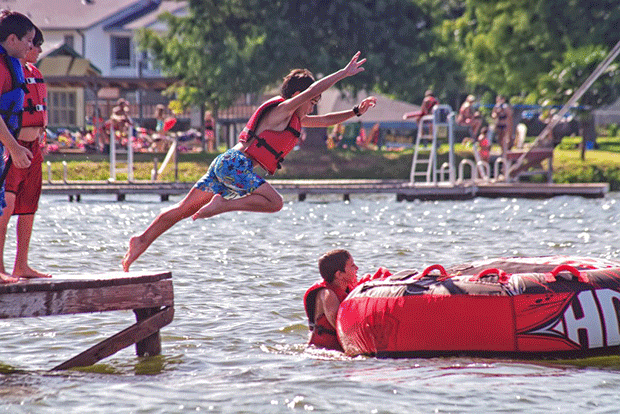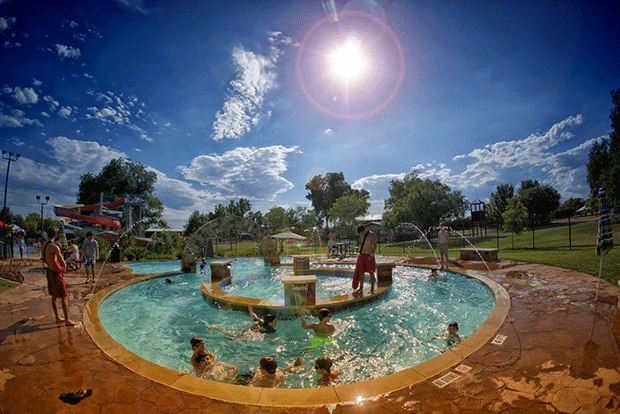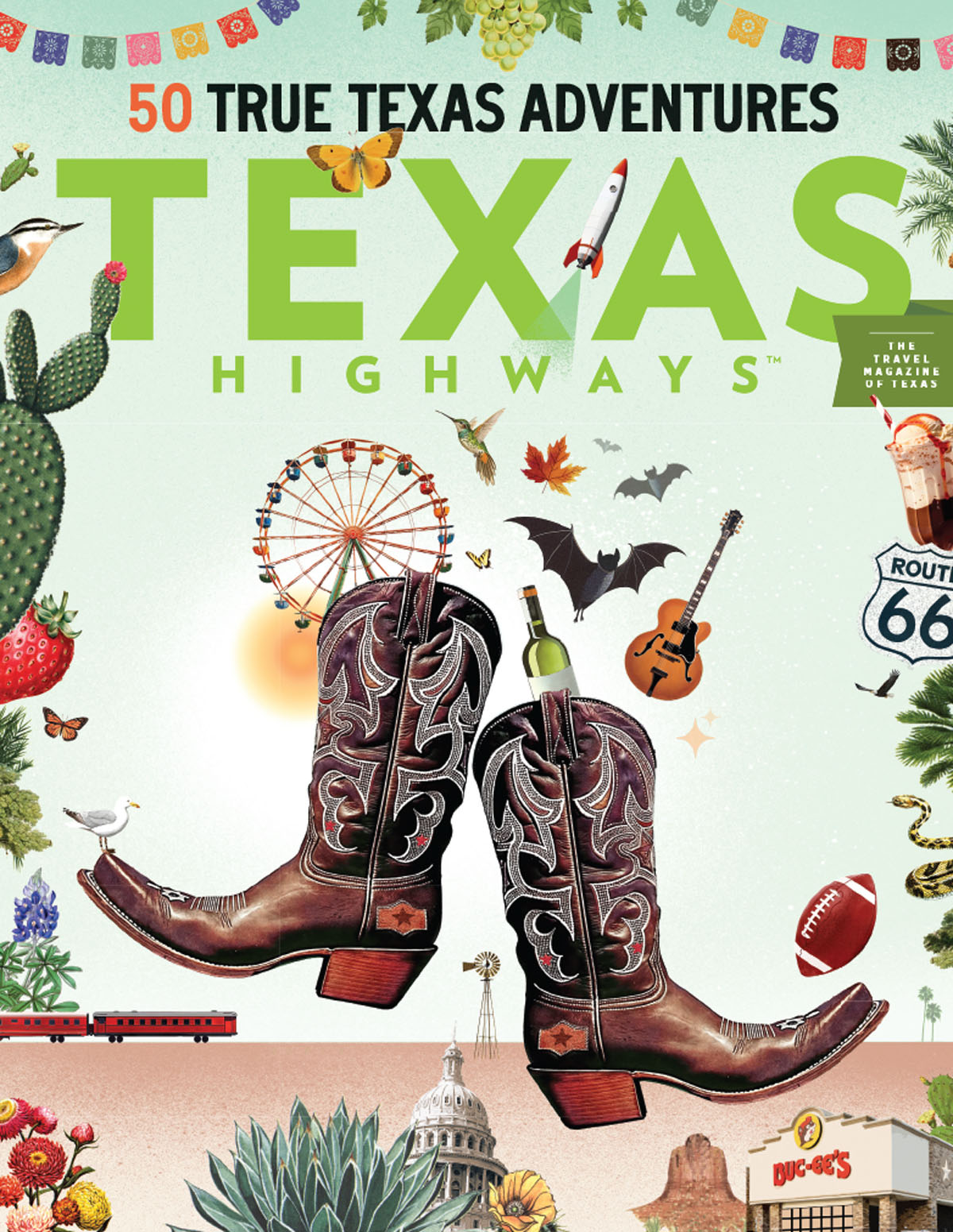 To set foot onto the Camp Champions campus is to enter a world you might have thought only existed in movies. That is unless you ever attended sleep-away camp, in which case, it feels like coming home.
To set foot onto the Camp Champions campus is to enter a world you might have thought only existed in movies. That is unless you ever attended sleep-away camp, in which case, it feels like coming home.
Camp Options
775 Camp Road
Marble Falls, TX 78654
(830) 598-2571
4045 North FM 1486
Montgomery, TX 77356
(936) 597-8225
2501 Central Parkway, Suite B2
Houston, TX 77092
713.960.8989
515 S. Capital of Texas Highway Ste. 133
Austin, TX 78746
512.263.8992
723 Olympia Drive
Trinity, Texas 75862
800.735.6190
Cabins on stilts line the side of a lake dedicated to swimming, jumping on an inflated tarp called “the Glob,” canoeing, and jet skiing. There’s a ropes course and an arts-and-crafts cabin, a rock-climbing wall and a zip line. Buildings have silly names, like the “Kneeman Markus” camp store. The “Fillin’ Station” dining hall is steeped in history, with plaques and flags decorated by campers dating back to the early 1970s.
Camp Champions, in the Hill Country hamlet of Marble Falls, was founded in 1967 by former University of Texas football coach Darrell K. Royal, Major League Baseball veteran Pete Runnels, college football referee Horton Nesrsta, and swimmer/spiritual founder of Luckenbach, Texas, Hondo Crouch. It’s notable alumni include Drew Brees, Lisa Loeb, and Michael and Susan Dell.
By the time Steve and Susie Baskin bought Camp Champions in 1997, the sports camp already had an established 30-year history.
“We saw the opportunity to slightly change the direction,” explains Steve Baskin, as we visit on the deck at Mozart’s in Austin prior to the start of a camp information session for local parents. “We don’t see camp as a place to acquire physical skills, we see it as a place to acquire social skills, mindsets and dispositions and character skills.”
At Champions, these “non-cognitive skills,” much like spinach sneaked into brownies, are embedded into the camp experience through an emphasis on having fun with friends against a picturesque Hill Country backdrop.
“You’ll never get a letter home from your camper that reads, ‘Dear Mommy, today I had a transformative childhood experience,’” says Baskin. “You’ll get, ‘I’m a Trojan and I’m painted blue!’”
But these are not new ideas. Long before there was research into what we now call “growth mindset,” I went to camp and rode horses, learned how to sail and waterski, and sing songs around a campfire. I have fond memories of cabin clean-up competitions, which included constructing elaborate welcome messages and images out of pine cones, pine needles, rocks and sticks in hopes that we would win the privilege of being first in line for breakfast. There were afternoon trips to the canteen, where I would load up on suicide sodas, chips, and oversized watermelon-flavored Jolly Ranchers that transformed into sharp sugar blades as you sucked on them.
While I was having all that fun, I also was learning valuable life lessons. I learned to work in a team to achieve desired results (winning the cleanest cabin award). I learned about taking care of myself, especially when I got so sunburned that I was forbidden by camp staff to swim or go on afternoon horseback rides without first protecting my skin. I learned independence, and I learned how to build relationships with new kids and adults, which was a valuable socialization skill. Camp has always offered children the opportunity to stretch the rubberband of their experiences. The Baskins are just formalizing these psychological concepts within the camp context.
 “Every child’s education has three legs to it,” says Baskin. “It starts with parent education. This is where basic values happen. Then there’s school education, where you learn the subjunctive and algebra and biology. There are lots of informal ways to learn the third leg, which I’ll call camp education. What it really means is education –– away from Mom and Dad, and away from an academic environment –– around other kids with an engaged positive role model who cares about you, and where you can practice peer-to-peer communication.”
“Every child’s education has three legs to it,” says Baskin. “It starts with parent education. This is where basic values happen. Then there’s school education, where you learn the subjunctive and algebra and biology. There are lots of informal ways to learn the third leg, which I’ll call camp education. What it really means is education –– away from Mom and Dad, and away from an academic environment –– around other kids with an engaged positive role model who cares about you, and where you can practice peer-to-peer communication.”
Camp Champions isn’t alone in offering fun-steeped growth experiences in Texas. Camp Lantern Creek, in Montgomery, helps girls develop life and leadership skills by discovering of new abilities, whether it’s singing, sewing, or learning to change a tire. Kidventure camps focus on leadership and community service through weeklong Safari camps for kids ages 8–13 at Mo-Ranch in Hunt, and Echo camps for children ages 13–16 at Camp Eagle in Rocksprings. Camp Olympia, on the shores of Lake Livingston in Trinity, prides itself on being a “positive zone” where kids can curate an individualized camp experience based on their preferred activities, while also learning cooperation and teamwork.
It may be hard to send a child to camp for weeks at a time, especially for the first time. Homesickness is real, and parents may have a hard time putting their child into the care of virtual strangers. So much of parenting, though, is mastering the art of letting go, helping their child to cultivate independence and broaden their perspectives. It’s hard to imagine a more pleasurable way to master that art than through summer camp, sunburn and bug bites notwithstanding.




